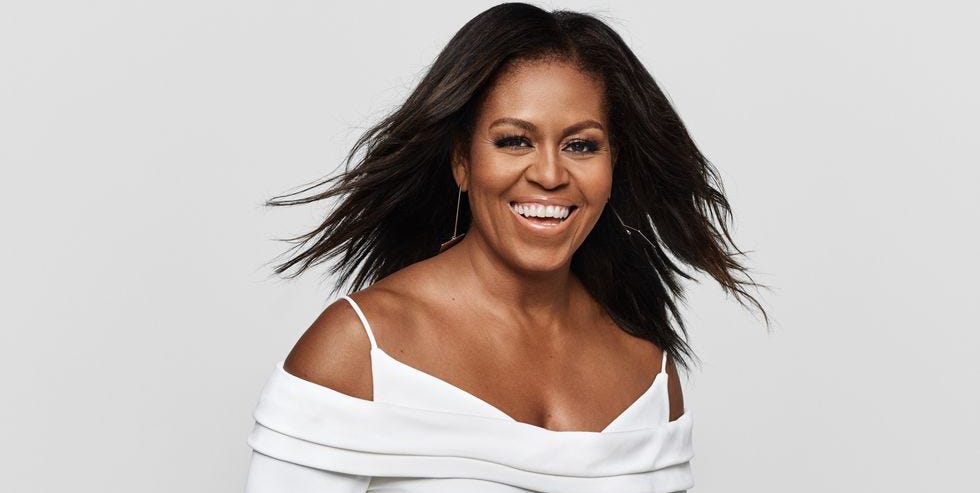

Living in the White House for eight years, Michelle Obama had staffers providing everything she could have possibly needed, except for time. “What I came to realize is that there was absolutely no time to reflect in the White House,” the former first lady told Oprah Winfrey for ELLE’s December issue. “We moved at such a breakneck pace from the moment we walked in those doors until the moment we left.”
Advertisement – Continue Reading Below
Now, with time to process two terms in office—a historic run of accomplishments and struggles—Obama has released her highly anticipated memoir, Becoming. Ahead of her book release, the former FLOTUS sat down with Oprah, and got real about her marriage to Barack, the threats made against her children, and life after the White House.
On her and Barack’s early marriage struggles:
“When you get married and have kids, your whole plan, once again, gets upended. Especially if you get married to somebody who has a career that swallows up everything, which is what politics is. Barack Obama taught me how to swerve. But his swerving sort of—you know, I’m flailing in the wind. And now I’ve got two kids, and I’m trying to hold everything down while he’s traveling back and forth from Washington or Springfield. He had this wonderful optimism about time. [Laughs] He thought there was way more of it than there really was. And he would fill it up constantly. He’s a plate spinner—plates on sticks, and it’s not exciting unless one’s about to fall. So there was work we had to do as a couple. Counseling we had to do to work through this stuff.”
On what she learned in couple’s therapy with Barack:
“Well, you go because you think the counselor is going to help you make your case against the other person. ‘Would you tell him about himself?!’ And lo and behold, counseling wasn’t that at all. It was about me exploring my sense of happiness. What clicked in me was that I need support and I need some from him. But I needed to figure out how to build my life in a way that works for me.”
Advertisement – Continue Reading Below
On being vulnerable:
“I feel vulnerable all the time. And I had to learn how to express that to my husband, to tap into those parts of me that missed him—and the sadness that came from that—so that he could understand. He didn’t understand distance in the same way. You know, he grew up without his mother in his life for most of his years, and he knew his mother loved him dearly, right? I always thought love was up close. Love is the dinner table, love is consistency, it is presence. So I had to share my vulnerability and also learn to love differently. It was an important part of my journey of becoming. Understanding how to become us.”
On Donald Trump, and how his birther conspiracy endangered her children:
“For [Trump] it was a game. But the threats that you face as the commander in chief are real. And your children are at risk. In order for my children to have a normal life, even though they had security, they were in the world in a way that we weren’t. To think that some crazed person might be ginned up to think my husband was a threat to the country’s security; and to know that my children, every day, had to go to a school, and soccer games, parties, and travel; to think that this person would not take into account that this was not a game—that’s something that I want the country to understand. I want the country to take this in, in a way I didn’t say out loud, but I am saying now. It was reckless, it put my family in danger, and it wasn’t true. And he knew it wasn’t true.”
On feeling optimistic about our country:
“We have to feel that optimism. For the kids. We’re setting the table for them, and we can’t hand them crap. We have to hand them hope. Progress isn’t made through fear. We’re experiencing that right now. Fear is the coward’s way of leadership. But kids are born into this world with a sense of hope and optimism. No matter where they’re from. Or how tough their stories are. They think they can be anything because we tell them that. So we have a responsibility to be optimistic. And to operate in the world in that way.”
Be the first to comment